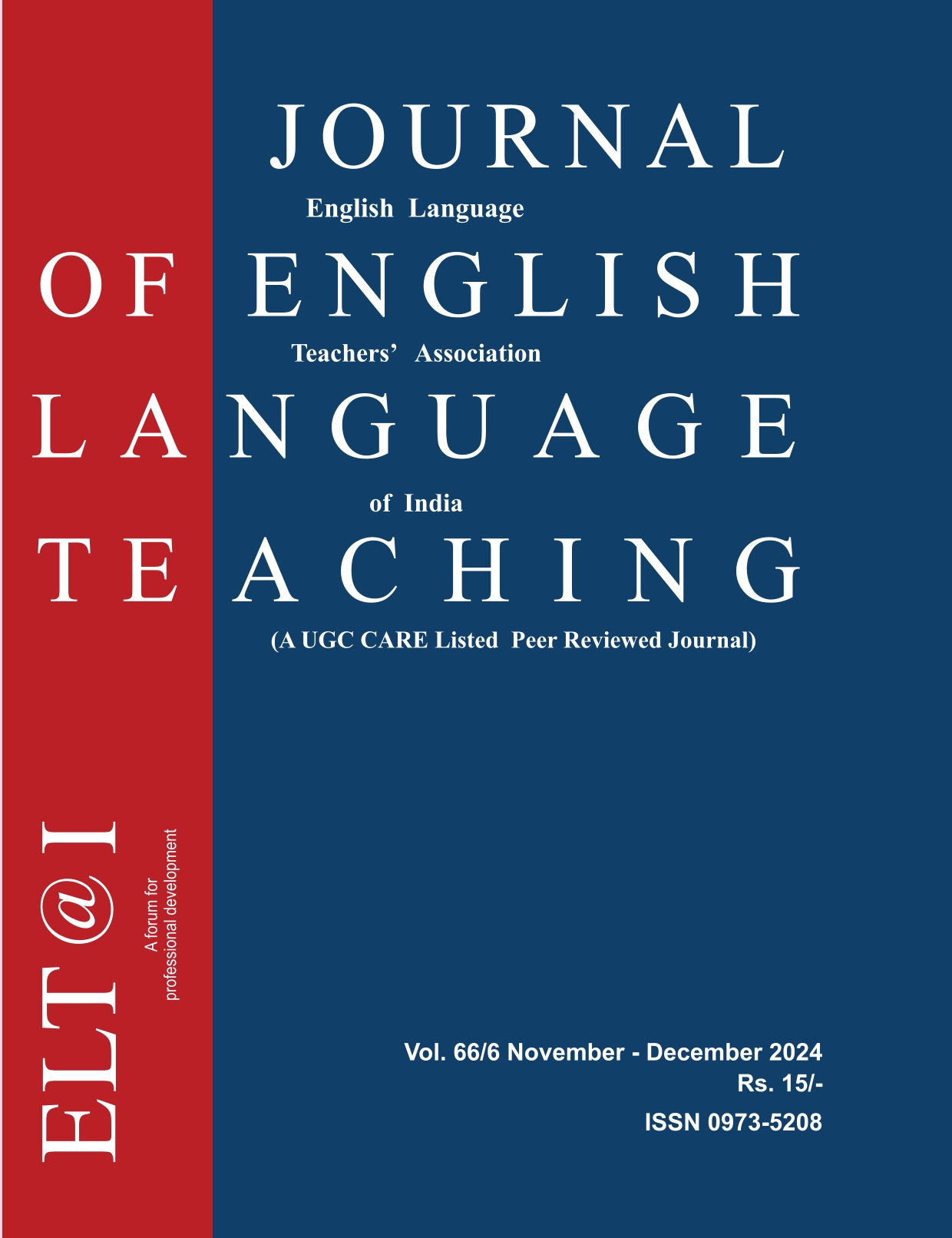Incorporating IKS in English Language Education: Perspectives from Critical Pedagogy
DOI:
https://doi.org/10.66121/c6yqx216Keywords:
IKS/Indian Knowledge System, National Education Policy, decolonial, critical pedagogy, dialogic pedagogyAbstract
IKS or Indian Knowledge System has been occupying a central position of attention in education as envisioned in the National Education Policy, popularly termed as NEP-2020. Subsequently, there is a need to incorporate IKS in material design and teacher training so that NEP 2020 can result in a successful educational programme in its implementation. Critical pedagogy is an educational approach that focuses on arousing conscientization in place of a “banking model of education”. Learners’ background forms an important component in the Freirean dialogic pedagogy. The Indian Knowledge System as envisioned in NEP 2020 is also an attempt to incorporate the learners’ background, culture and heritage in pedagogy. This is a decolonial approach so that the learners can feel a sense of pride in their heritage replacing the colonization of mind. This is also an attempt to eliminate the ‘alienation’ affect which is brought in by the colonial system of education. This paper is a theoretical study that will explore the theoretical possibilities and approaches of critical pedagogy about NEP 2020 in the context of decolonial education and the Indian Knowledge System.
Downloads
References
Deepa & Amartheja (2024). “Androgenic language classroom and Samvada as a base for questioning technique”. In Gore, Vittal, A Glimpse of Indian Knowledge Tradition/ Cognigence of Continuity. Notion Press.
Freire, Paulo. 1993(1970). Pedagogy of the Oppressed. Penguin.
———————— 2005a (1974). Education for Critical Consciousness. Continuum.
Kapoor, Kapil & A. K. Singh, (eds.).2005.Indian Knowledge Systems, Vol.1. IIAS, Shimla.
Marathe, Sudhakar, Mohan Ramanan, Robert Bellarmine(eds).1993. Provocations: The Teaching of English Literature in India. Hyderabad: Orient Longman and British Council.
Mukherjee, Alok K. (2009). This Gift of English. Orient Blackswan Private Ltd. Hyderabad.
Shor, Ira. (1992). Empowering Education: Critical Teaching for Social Change. Portsmouth, NH: Heinemann.
Ramanujan, A. K. (1989) “Is there an Indian Way of Thinking? An Informal Essay” in Contributions to Indian Sociology 23/1 pp.41-58 accessed from < https://profcohen.net/reli113/uploads/texts/ ramanujan.pdf >
UGC. (2023). Guidelines for Training/ Orientation of Faculty on IKS.
Ministry of Education (GoI). (2021). A Concept Note on Stimulating Indian Knowledge System, Arts and Culture. https://iksindia.org/vision.php




